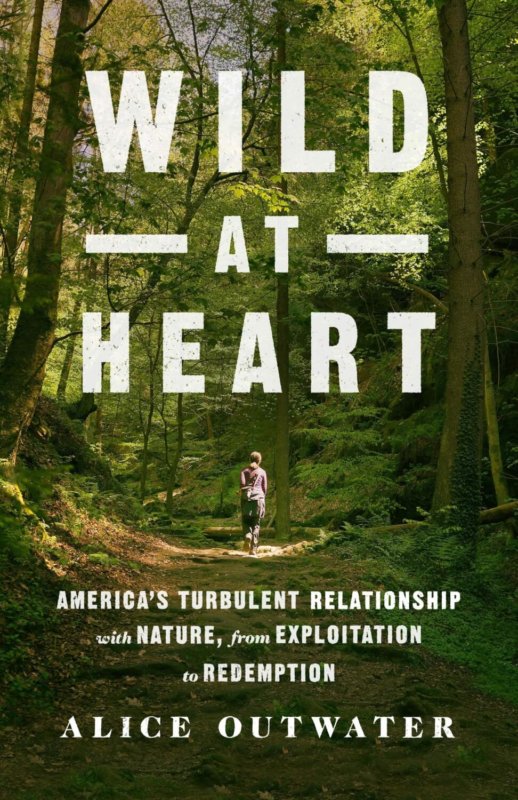Book review: Wild at Heart by Alice Outwater

How nature and human nature interact
Alice Outwater (the younger daughter of Alice Outwater senior) has published her fourth book, Wild at Heart (St. Martin’s Press). In it she looks at the interplay between the natural world that she calls “wildness” and what human nature has done to modify it in order to make parts of it what she terms “wilderness.” We have taken what is wild, exploited it for our benefit, and now, she says, we need to redeem what we have done.
Outwater grew up in Burlington and Charlotte where her mother was a long-time contributor to The Charlotte News. Alice Jr. studied engineering at UVM and at Massachusetts Institute of Technology. In addition to writing, she consults on water quality and now lives in Colorado. Wild at Heart is a historical treatise on the interaction between the natural environment and the humans in it, often going back decades, if not centuries. Her thesis is that mankind has taken a world of nature and modified it to meet humanity’s desires, often for business gains—whether farming, tourism, plantations or in pursuit of corporate profits (including guns, by the way)—that erased nature.
In her opening chapter Outwater discusses how many Native Americans used property as a bartering agent or, in other instances, such as the locally based Abenaki, had shamans living in forests, traveling between nature and human society in a trance to help heal or generate productive weather or provide food that the natives hunted. While in a trance, the shaman’s spirit left its body and entered the supernatural world. Outwater says it was the beliefs of these tribes (thankfulness of the Chinook, reverence of the Hopi, restraint of the Abenaki) that “reflect a relationship with nature that models the sustainable balance we are trying to create today.”
She continues, chapter by chapter, to show what we have tried to accomplish and how it often detracts from the natural world.
(I must throw in a personal pitch here. In her chapter on “Protecting Nature” Outwater describes our country’s reliance on whale oil and blubber during the 19th and early 20th century. As a summer visitor to Cape Cod and the islands for the past 48 years, I have witnessed the remnants of that industry, particularly in the Portuguese residents whose ancestors were the whaling immigrants.)
She does end the book on a hopeful positive note. She says there is debate between those who want to change the habitat for personal gain and those who want to protect wilderness as it creates itself naturally. “Unless we reduce the human footprint on the world, we will destroy its diversity and beauty. … Protecting ecosystems is not just for humans but for the Earth itself.”
Drawing from Dennis and Donella Meadows, authors of Limits to Growth, Outwater says that instead of “overpopulation, over consumption, pollution, and the resulting societal collapse . . . we could live within limits that allowed wildness to exist. We could live, and let live.”
She ends by citing aboriginal attitudes toward wildness, which many people have adopted: “Like the Hopi, we must sign up to be nature’s guardians. Like the Abenaki, we seek balance. Like the Chinook, we give thanks.”

